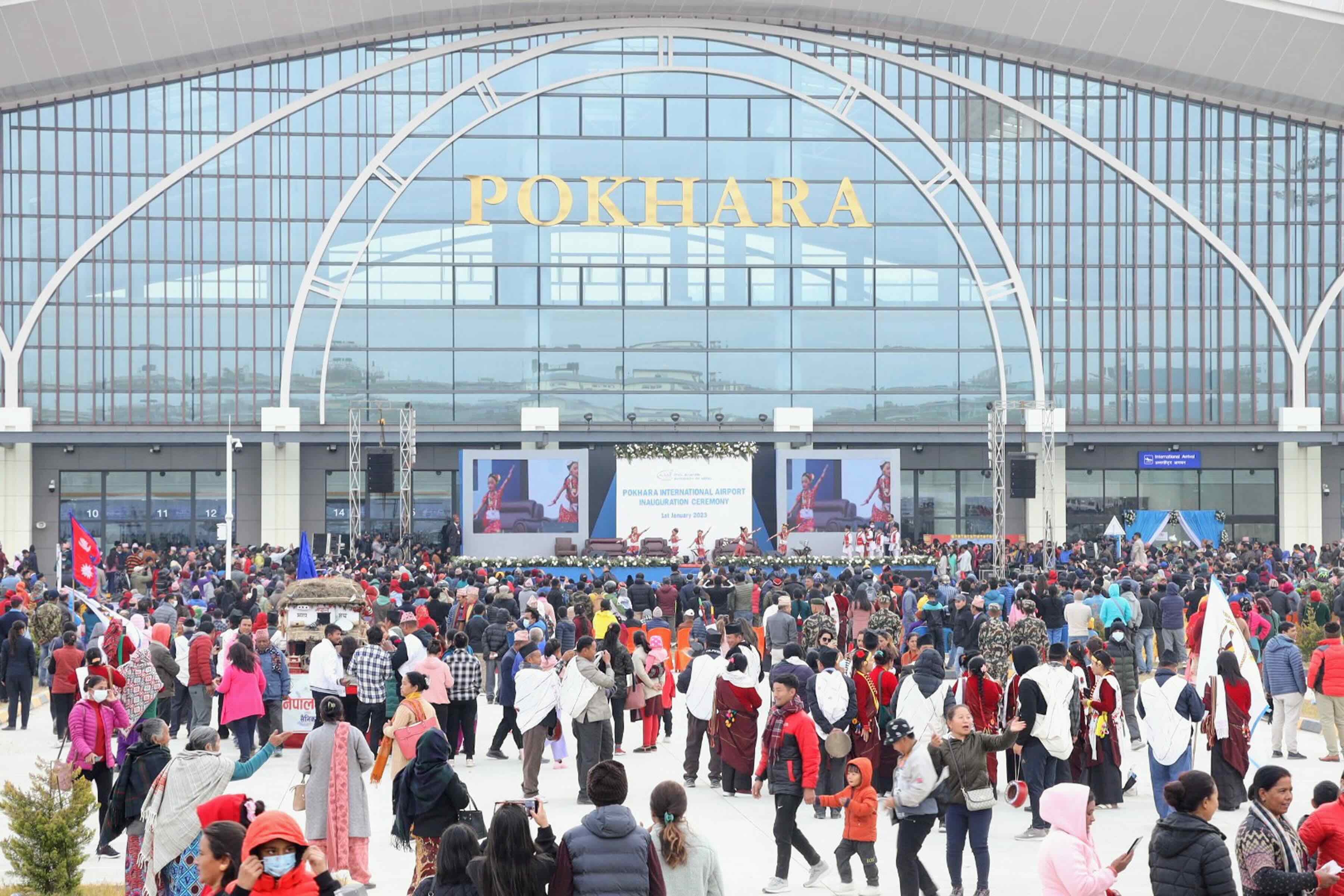Pokhara International Airport: A Symbol of China's Flawed Infrastructure Projects

Last year, when a new international airport opened in one of Nepal's major cities, it was seen as a landmark project that would boost the country’s economic growth and deepen ties with China, which financed and built the airport. However, the Pokhara airport has now become a symbol of the pitfalls associated with China’s international infrastructure projects, which are often criticized for being expensive and of poor quality, leaving the borrowing countries burdened with debt.
On Thursday, Nepal's newly-formed government, led by the country's largest communist party with close ties to Beijing, officially requested that China convert the $216 million loan for the airport into a grant, effectively wiping out the debt. The request was made during a visit by a Chinese delegation that included Vice Foreign Minister Sun Weidong.
The Pokhara airport has faced numerous problems. Just weeks after its opening in January 2023, a domestic flight headed for Pokhara crashed into a river gorge, killing 72 people. The airport has yet to attract regular international flights, which has dimmed the project’s financial outlook. Over the past year, Nepal’s anti-corruption agency and a parliamentary committee have launched investigations into the airport’s construction.
Last year, **The New York Times** reported that China CAMC Engineering, the construction arm of the state-owned conglomerate Sinomach, had inflated the project’s cost and undermined Nepal's attempts to monitor construction quality.
China, through President Xi Jinping's signature Belt and Road Initiative, has extended over an estimated $1 trillion in loans and grants for international infrastructure projects. The initiative is part of Beijing’s efforts to forge economic and diplomatic ties with other countries while building a lucrative portfolio of construction work for its state-owned enterprises. However, for some developing countries, the loans have become a financial burden as they struggle to repay the debt.
In an interview on Friday, Bishnu Prasad Paudel, Nepal's Deputy Prime Minister and Finance Minister, stated, “We made the request to China as our neighboring country because Nepal is still struggling to revive its economy.”
“We are hopeful,” Mr. Paudel added, though he declined to provide further details.
The Chinese embassy in Kathmandu, Nepal's capital, did not immediately respond to a request for comment.
If Beijing agrees to Nepal’s request, it would signal a strengthening relationship between the country’s new government and China.
In July, Nepal’s largest communist party joined forces with the Nepali Congress, the largest party in the country's parliament, to form a coalition government led by K.P. Sharma Oli. During his three previous stints as prime minister, Oli earned a reputation for opposing the influence of India, Nepal’s southern neighbor and a regional rival to China.
His government has wasted no time cozying up to Beijing. On Thursday, Oli overturned a ban on TikTok, the popular social media app owned by Chinese tech giant ByteDance, which had been imposed by his predecessors less than a year ago.
On the same day, Nepal announced that the two countries had agreed on a series of development projects, including two to upgrade highways connecting to the Chinese border. They also agreed to build integrated check posts along the Nepal-China border.
Nepal’s economy, heavily reliant on overseas remittances and tourism, has struggled to recover since the pandemic. The international airport in Pokhara, a picturesque city set in the foothills of the Himalayas, was seen as a way to boost tourism and breathe new life into the economy.
However, so far, the airport has failed to attract any commercial international flights, largely because India has refused to grant permission for its carriers to fly in and out of Pokhara. This has raised concerns that the airport may not generate enough revenue to repay the loan from the Export-Import Bank of China. Nepal is scheduled to start repaying the loan in 2026.
Meanwhile, there are two ongoing investigations into the airport’s construction. Nepal’s Commission for the Investigation of Abuse and Authority is looking into allegations that the Chinese construction company compromised on construction quality to maximize profit. Nepali officials are also accused of accepting kickbacks while awarding the contract to CAMC. A separate parliamentary committee was formed to investigate possible irregularities in the construction process.
China CAMC Engineering has not responded to requests for comment regarding the investigations.
Binoj Basnyat, a retired Nepali general and researcher at Rangsit University in Thailand, said that China would likely convert the loan into a grant as it seeks to build a strong relationship with Nepal’s communist party. He also pointed out another benefit for China if it agrees to the request.
“The investigation into the corruption charges will quickly come to an end,” said Mr. Basnyat. “Nobody will talk about that anymore.”
This content was originally published in The New York Times and was prepared by Bhadra Sharma and Daisuke Wakabayashi. The original article can be found at this link.


![From Kathmandu to the World: How Excel Students Are Winning Big [Admission Open]](https://nepalaaja.com/img/70194/medium/excel-college-info-eng-nep-2342.jpg)


